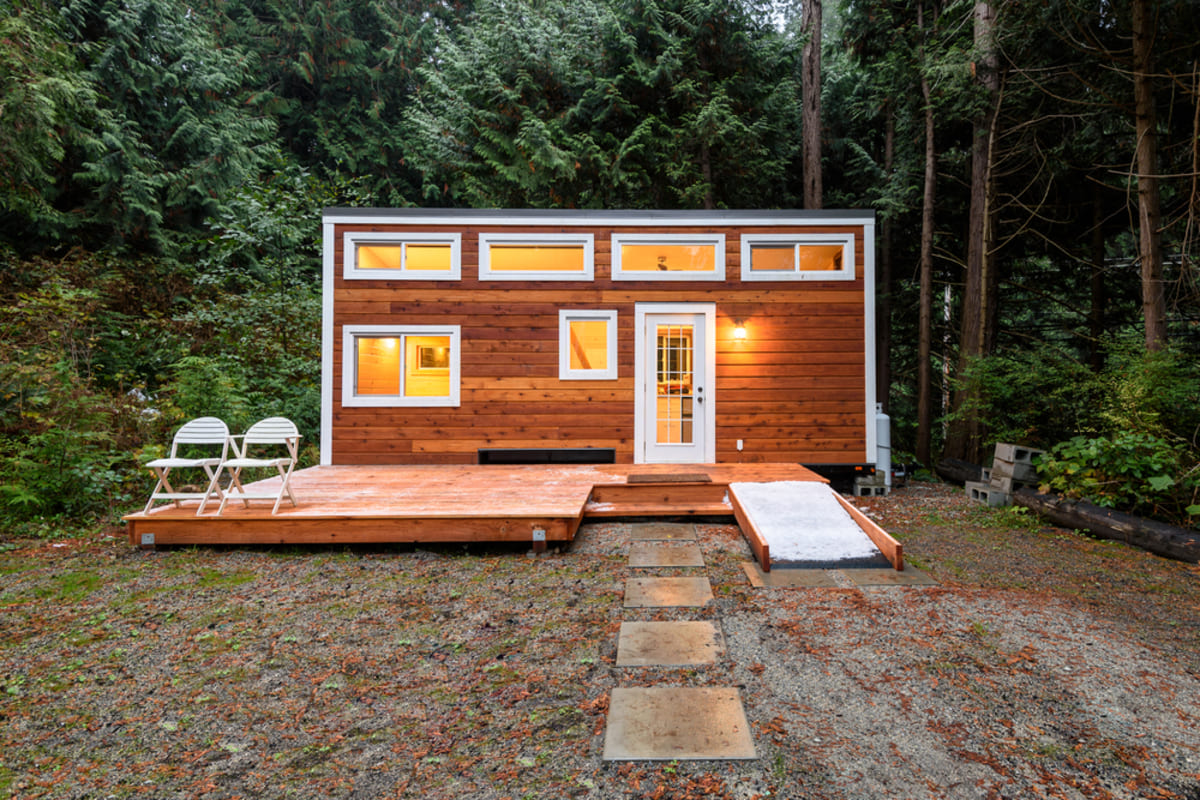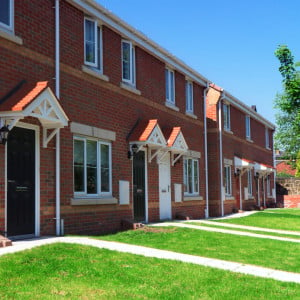Listen to the article
Choosing the Right Detroit Property Type for Wealth Generation
Building wealth through real estate investments could be as simple as choosing the right property type. Although there are many other factors to consider when investing, choosing from Detroit property types is an important decision in your real estate investment journey. That's why we've put together this blog to guide you through the main property types, some real estate hidden gems, and other factors to consider.
If you're ready to start investing or trying to diversify your portfolio, start with this guide to explore the advantages and disadvantages of each property type and make an investment that you can be confident in.
Exploring Single-family Homes, Duplexes, Multi-unit Buildings
In this section, we'll explore the different types of properties you can invest in and their unique advantages and challenges of each. With this information, you can better decide which type of property is best for you to invest in to guide you in your wealth generation journey.
Single-family Homes
One of the advantages of investing in single-family homes is the ease of property management. Since there is only one tenant and one unit to maintain, the job is a lot easier and more manageable than if you were to invest in a multi-family property. Investing in a single-family home is also fairly stable as these types of properties are attractive to families and long-term renters. This way, you can have a more stable income stream.
There is also the potential for higher appreciation because of the underlying value of the home they're built on.
Although there are advantages, there are also some different challenges you could encounter investing in single-family homes. First, the vacancy risk is higher than owning multifamily properties. In a multifamily property, if a tenant leaves, the impact is offset by the number of other tenants bringing in rental income. However, in single-family property, this is the only unit or tenant that can counteract the loss of income.
Another challenge is investing in multiple single-family homes can be time-consuming and costly, causing limited scalability. The maintenance costs can also be higher per unit because of their individual upkeep needs. A single-home property has its plumbing, roof, landscaping, and other factors that need maintenance and repairs.
Duplexes
A duplex is a multi-family home with two separate residential units under one property. An advantage of duplexes is the diversified income that it brings. Although not as large as an apartment, duplexes still provide a buffer against vacancy as there are two different rental units. There are also more financing options than larger multi-unit properties, like an apartment complex.
One unique advantage is it has the potential for owner residency, meaning you can live on the property while still generating rental income.
Every property type has its challenges, and one challenge of duplexes is that it is a shared space, which could potentially lead to conflicts between tenants or more tenant complaints. This may mean more work for you and learning how to use different conflict resolution techniques. The maintenance costs are also still higher per unit than managing a larger multifamily building.
Multi-unit Buildings
Lastly, let's explore the advantages and disadvantages of multi-family buildings. The first advantage is economies of scale, the maintenance and management costs are spread out across multiple units. There is also higher rental income and less vacancy risk because multiple units within the property are being rented out, bringing in multiple income streams. If someone leaves or is evicted, you take less of a blow than if you completely lose your rental income investing in a single-family home.
However, there are more complex maintenance and management tasks involved. Each unit has its own household appliances that need to be maintained. Keeping track of these responsibilities and all of your tenants requires a more in-depth management system.
Although the impact of vacancy might not be extreme. tenant turnover is higher for multi-unit buildings, causing you to spend more time and resources on leasing.
 Factors to Consider for Different Investment Strategies
Factors to Consider for Different Investment Strategies
There are many factors to consider before buying a property that will ultimately affect your investment's health. Let's explore each of these considerations.
Risk Tolerance
We all know that not every investment is a sure deal, but this is not always the easiest thing for investors to handle. That's why assessing your risk tolerance before entering an investment is important. Risk tolerance refers to your ability as an investor to endure changes in the value of your investment and the level of uncertainty you can handle.
Before investing you need to consider if you're more comfortable with riskier but potentially higher-yielding strategies like fix-and-flips, or if you prefer more stable rental properties for consistent cash flow. Some riskier property types include vacation rentals and commercial real estate, while less risky property types include long-term residential rentals.
Time Horizon
It's also important to determine how long you plan on holding the investment in your portfolio before selling or exiting and align this horizon with your investment goals. If your goal is short-term appreciation, you may want to invest in properties with the potential for rapid value appreciation. If you have medium-term goals, it may be beneficial to invest in properties with stable cash flow potential and opportunities for enhancing value.
Lastly, if you have long-term goals, invest in properties with desirable locations, steady rental demand, and potential for long-term appreciation.
Financial Goals
For many real estate investors, generating rental income is a primary financial goal. Before investing, you need to assess your rental income goals. Think about the level of rental income needed for financial stability or achieve the passive income you hoped for. To do this, you should assess cash flow projections, analyze rental market trends, and set rental rates.
Market Conditions
Ultimately, your investment health will be severely impacted by the market conditions and this won't be the same in every area. Conduct research about the local market conditions, including supply and demand dynamics, rental trends, and property values.
This way, you can adjust your investment timing based on the market conditions, such as entering a buyer's market. This initial decision can set you up for success in the beginning and help you sustain growth going forward.
Tax Considerations
There are certain tax deductions and tax benefits that investors need to be aware of to make a decision that can benefit them. Deductions for mortgage interest, property taxes, depreciation, and operating expenses allow investors to reduce taxable rental income, providing valuable tax benefits.
Utilizing a 1031 exchange enables investors to defer capital gains taxes on the sale of investment properties by reinvesting proceeds into similar properties. This tax-deferral strategy preserves investment capital for reinvestment, facilitating portfolio growth and enhancing wealth accumulation over time.
However, investors should ensure compliance with IRS guidelines and seek guidance from qualified tax professionals to maximize tax benefits and minimize tax liabilities in real estate investing.
Costs and Fees
Make sure to factor in all of the expenses of real estate investments. You'll need to take into account property taxes, property insurance, maintenance, repairs, and property management fees. There are also mortgage interest rates, loan origination fees, and closing costs to consider.
Diversification
If this is not a first-time investment, it's important to have diversification in mind. Diversification is beneficial to every property owner, helping you mitigate risk, generate stable returns, and capture new opportunities.
Consider the property type you're investing in. You should diversify your portfolio by investing in different property types, such as single-family, multifamily, and commercial real estate. You should also spread your investments across geographic locations to reduce your exposure to local market risks.
 Exploring Hidden Gems in Property Types
Exploring Hidden Gems in Property Types
The first investment types that come to mind when thinking of investing are single-family homes, multi-family properties, and commercial buildings. However, what about those niche properties that you don't always consider? In this section, we'll discuss some of real estate's hidden gems, mixed-use properties, historic properties, and micro-units.
Mixed-use Properties
A mixed-use building is a type of property that includes residential and commercial space. One reason why these properties are beneficial to invest in is diverse income streams. Because they combine residential, commercial, and retail spaces, it allows for the diversification of income streams, resulting in a more stable income.
Since these properties cater to more diverse needs, there is a higher tenant demand. Mixed-use properties may also be more attractive to commercial tenants looking to benefit from increased foot traffic from residents. Mixed-use properties also have the potential for greater capital appreciation over time.
Historic Properties
Another property type hidden gem is historic properties, which is extremely common in Detroit. Historic properties contribute to preserving the heritage and culture of the community, and by investing in these properties, you play a role in maintaining this. Investing in these properties also provides a unique selling point for tenants due to their uniqueness and authenticity.
One unique benefit is the opportunity for historic tax credits. Many governments offer financial incentives to encourage the preservation and rehabilitation of historic properties, and Detroit is one of them.
Micro-Units and Tiny Homes
Micro-units and tiny homes have several advantages. One primary advantage is their affordability; micro-units and tiny homes are typically more affordable to purchase compared to traditional single-family homes. These lower upfront costs make them accessible to a broader range of buyers, such as first-time buyers and retirees.
There is also a growing demand for smaller living spaces because of changing demographic and lifestyle preferences. Tiny homes are growing popular among millennials, empty-nesters, minimalists, and people seeking cost-effective housing.
There are also lower maintenance costs associated with managing a smaller unit such as this.
Invest Wisely in the Detroit Real Estate Market With the Help of Own It Detroit
Before investing in any property, it's important to do your research and consult a real estate professional to ensure you make a sound financial decision.
Although finding the right property is a big hurdle, it's only the first one. Investing in a property comes with a myriad of responsibilities that can only be made easier with the help of property management professionals. If you're looking for property management help, look no further than Own It Detroit.
At Own It Detroit, we provide comprehensive property management services tailored to maximize your investment's potential. Our expertise includes tenant screening, rent collection, maintenance coordination, and property marketing. With our dedicated team and industry experience, we ensure hassle-free ownership and optimal returns on your Detroit properties. Trust Own It Detroit for professional management solutions that deliver peace of mind and financial success.








